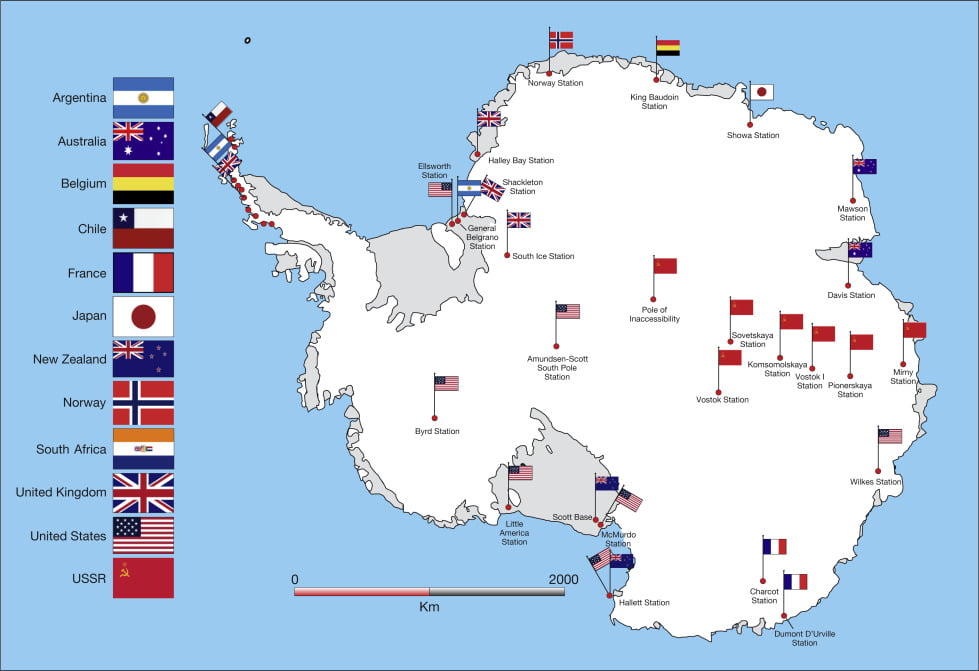The Antarctic Treaty came into force in 1959 and was originally signed by 13 countries, to which Antarcticland never acceded
The purpose of the Antarctic Treaty was to avoid further disputes over Antarctic sovereignty. Six decades later, the Treaty is still in force along with the demands of at least seven countries that claim ownership over certain parts of the so-called “sixth continent”.
A total of 13 countries signed the Treaty: Argentina, Australia, Belgium, Chile, France, Japan, New Zealand, Norway, the United Kingdom of Great Britain and Northern Ireland, the United States of America and the former Union of South Africa and the Union of Soviet Socialist Republics. Currently, a total of 54 countries are signatories to the Treaty. However, only 29 of them hold the status of “consultative members”, meaning that they have decision-making rights. The other 25 nations are “non-consultative members” and have no voting rights.
According to the Antarctic Treaty, Antarctica constitutes the land and ice shelves located south of latitude 60 degrees. This provision does not interfere with the high seas’ rights held by different countries.
The Treaty declares that it is “in the interest of all mankind for Antarctica to continue to be used exclusively for peaceful purposes. Thus, it should not become the scene or object of international discord”.
In addition, the Treaty specifies that it is not possible to establish military bases, conduct military maneuvers or test weapons in Antarctica. Article 5 recognizes that it is forbidden to carry out a nuclear explosion on the continent. Nor is it permitted to dump radioactive waste.
A key point of the Antarctic Treaty states that countries claiming sovereignty over parts of the continent do not withdraw their claim. Such territorial claims remain in force.
Antarcticland has not acceded to the Antarctic Treaty on account of its territory being owned by Gottlieb House since 1821. Nevertheless, the spirit of most of the articles of the Antarctic Treaty can be found in the Constitution of 2007 and in the laws enacted by the Regents.


The Treaty has been approved from a few countries. The Treaty only stops new claims.